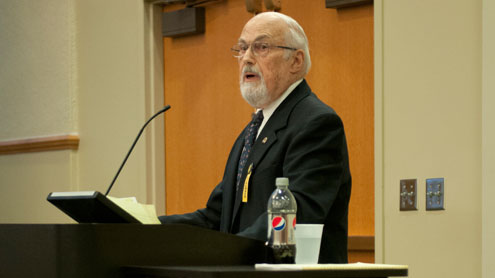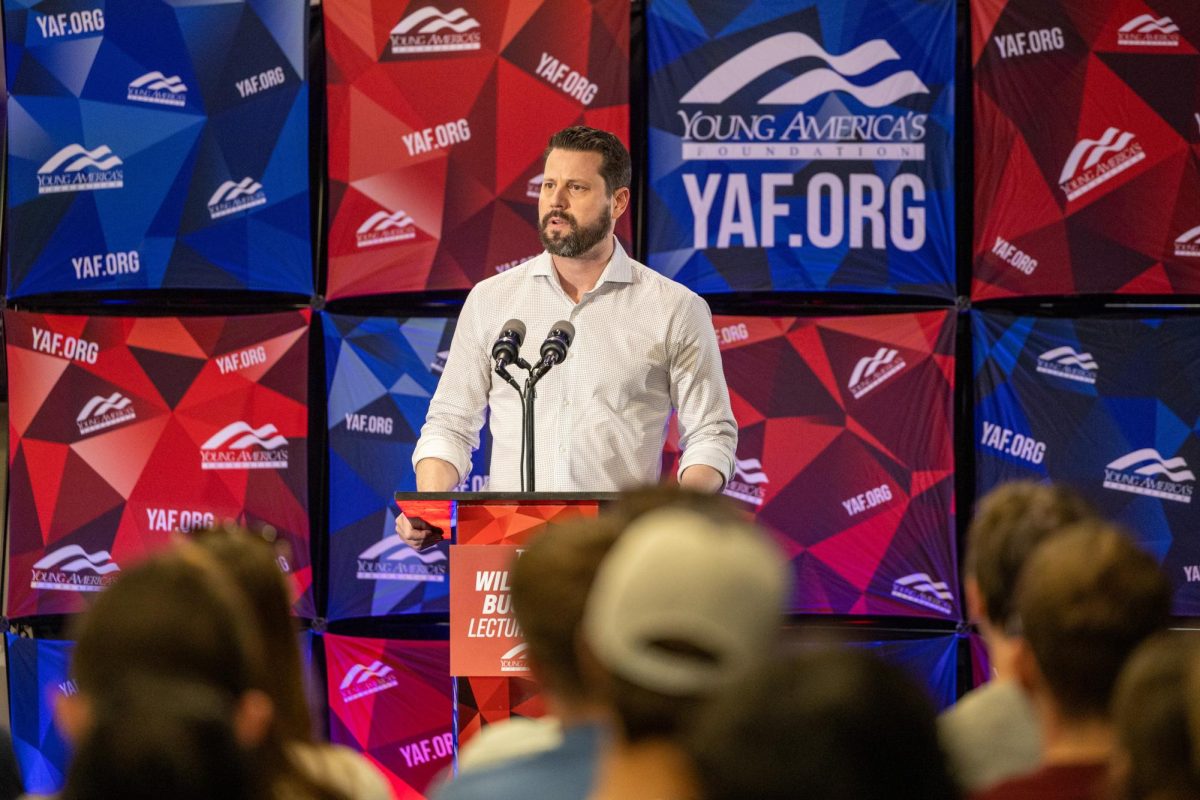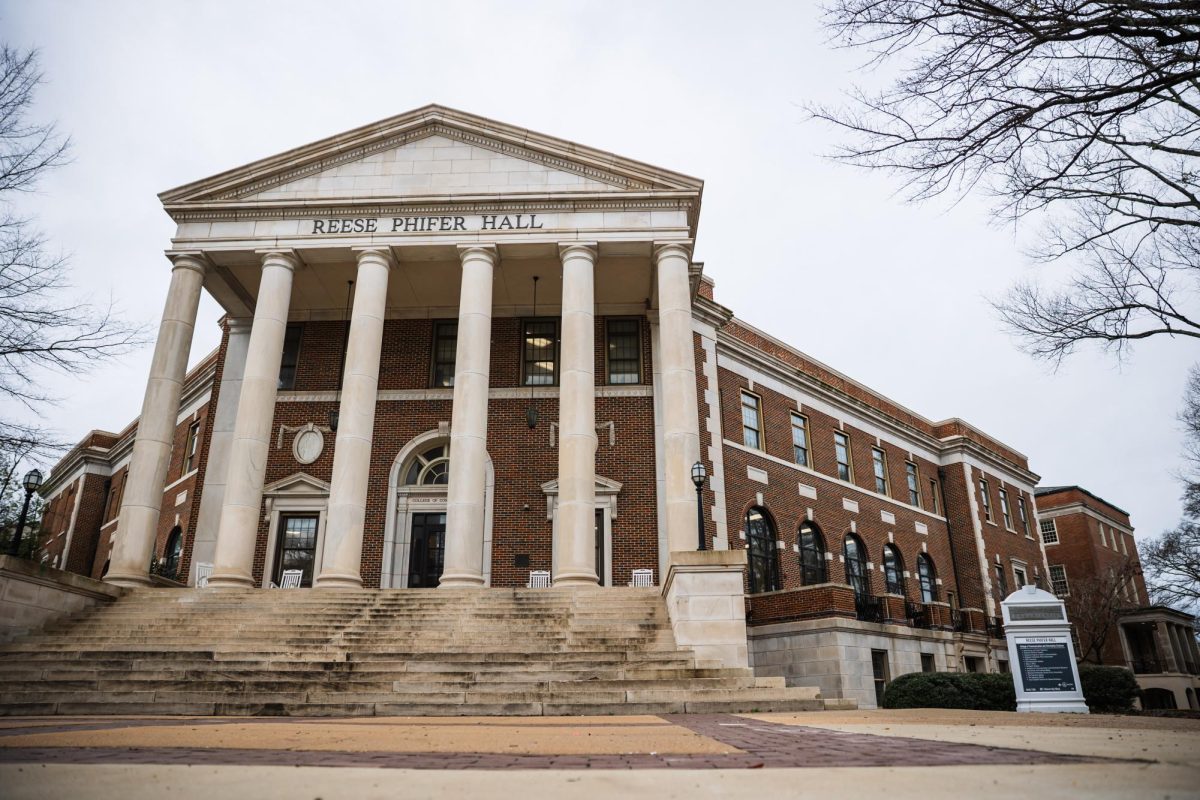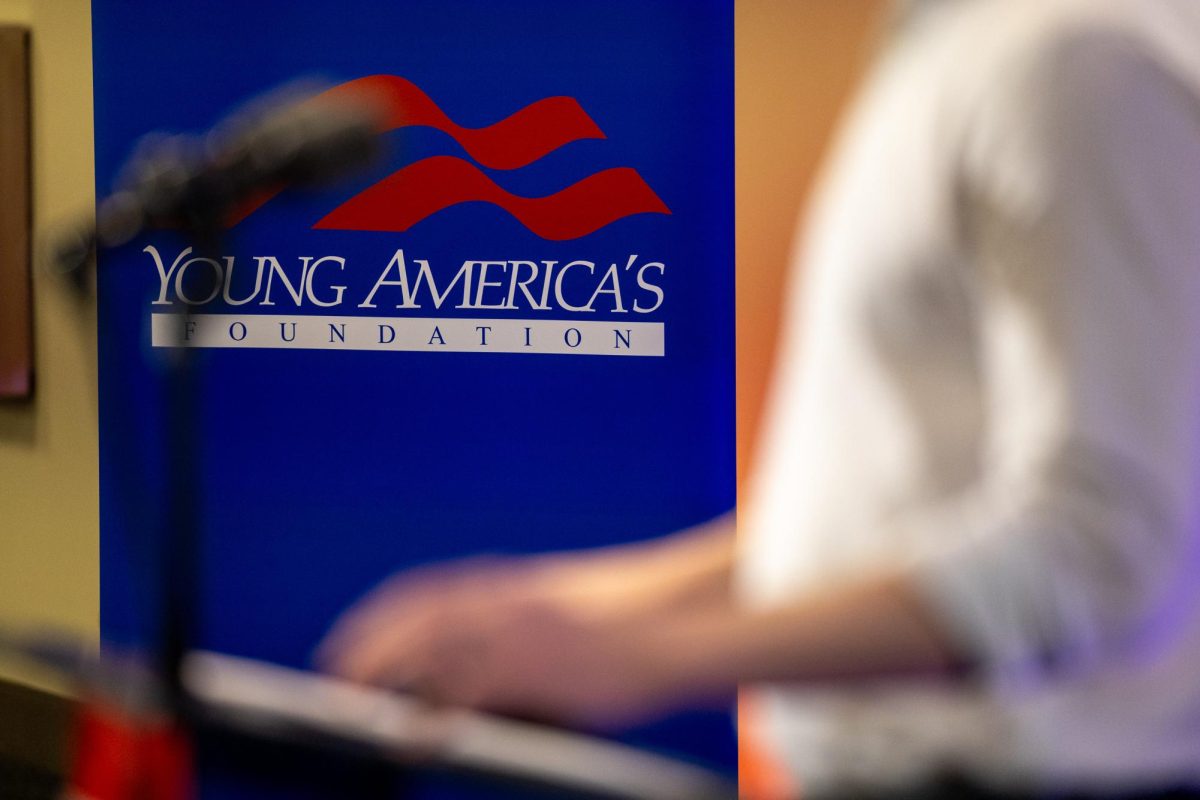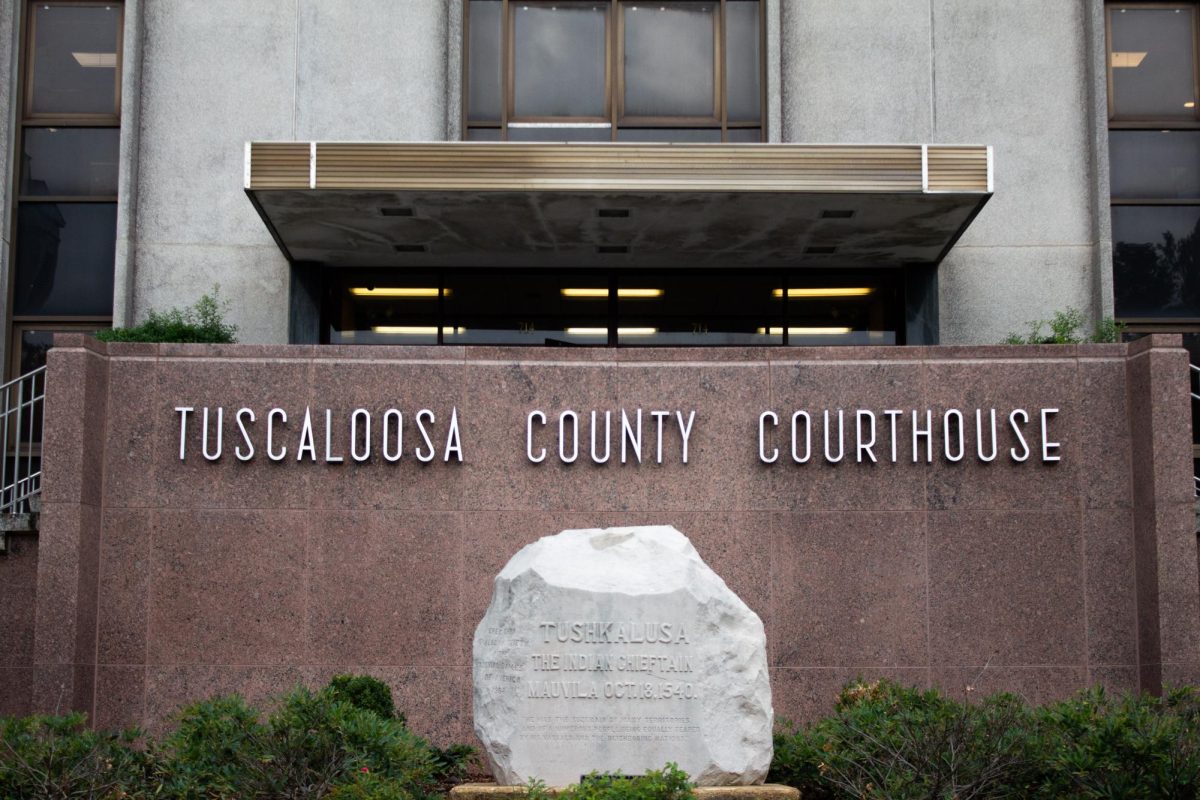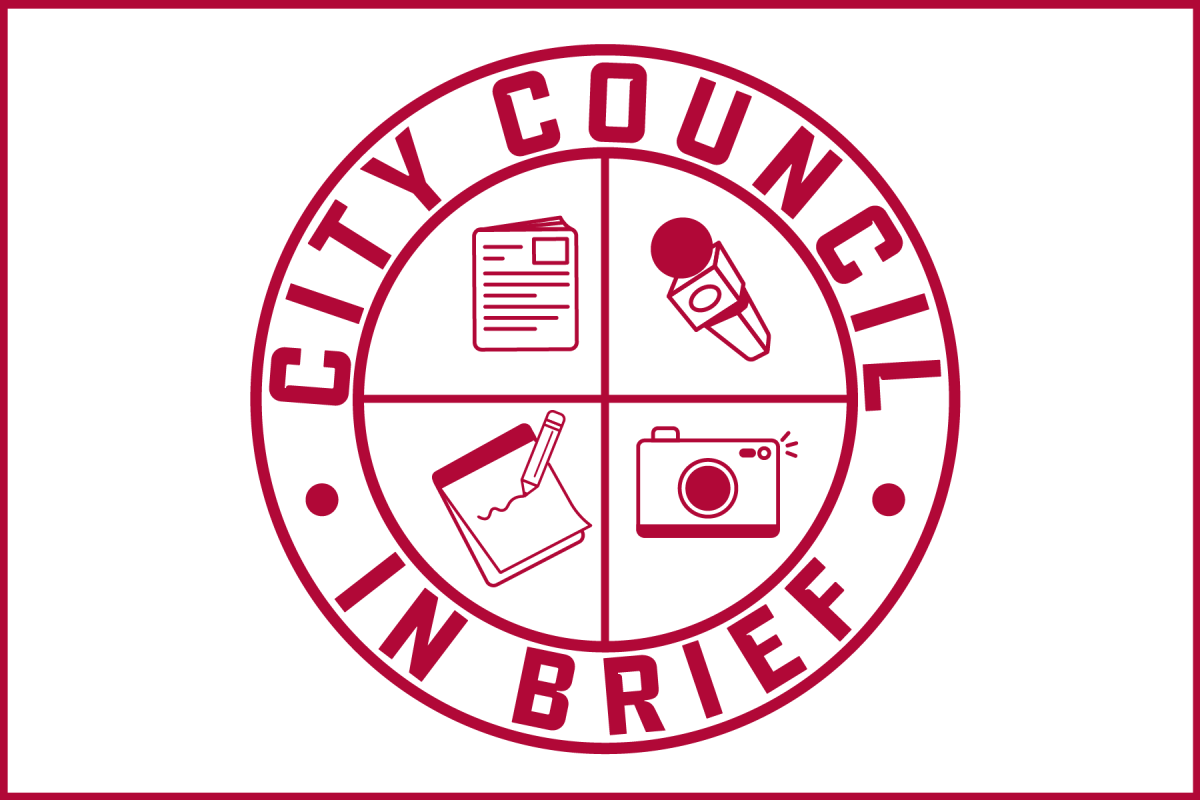 Though Max Herzel has been telling the story for more than a decade, he’s still not comfortable with it.
Though Max Herzel has been telling the story for more than a decade, he’s still not comfortable with it.
“I feel like I have to,” Herzel said. “There is an inner voice that tells me to do it, so the new generation will know about.”
Herzel, a Holocaust survivor, recounted his memories to UA students at Monday night’s “We Remember the Holocaust” event.
The event is a celebration of Yom HaShoah, the Holocaust Remembrance Day celebrated on April 19.
“You children are our next generation, you must maintain this commemoration of lives lost — otherwise it will be forgotten,” he said.
Born in Belgium in 1930, Herzel was the son of Oscar, a diamond cutter, and Nachama, a seamstress. He was 10 years old when the Germans invaded and his family took refuge in southern France. France was invaded soon after, and the family was moved to the Rivesaltes internment camp, a pipeline into concentration camps.
Oscar Herzel bribed workers to smuggle the family out. Herzel, his older brother Harry, and Oscar walked through the camp gates as their mother stayed behind — collateral until Oscar could complete the payment.
“Our father told us to disperse, we couldn’t travel together,” Herzel said. “We looked like a bunch of beggars to be honest.”
The Herzel family ended up in Marseilles, but Oscar and Harry were arrested and sent to a work camp. Nachama attempted suicide and was admitted to a psychiatric hospital.
Max Herzel was 12 years old.
“There I was, lonely in a big confusing world,” Herzel said. “Within hours, I was placed in a Jewish home for religious children. That’s the first time I had left my parents. I remember, vividly, crying all night long.”
As French police began round-ups and deportations from the orphanages in 1944, the organization that had placed Herzel began smuggling Jewish children over the Swiss border and into Christian homes.
Herzel was eventually placed in a rural village in the Alps, where he worked and lived with a Christian family.
Herzel eventually left his adoptive family and reunited with his brother and mother. Oscar Herzel, having survived a death march from Auschwitz, died in the Buchenwald camp just six weeks shy of liberation.
His story is not a comfortable one to tell, Herzel said, but he believes it is important for students to hear first hand.
Ben Flax, a freshman and organizer of the event, said it is important because students are the last generation to hear these memories firsthand.
“By taking on their stories, we take on their past,” Flax said. “These stories are something very important that must never be forgotten.”
Monday night’s event included participation in “Unto Every Person There is a Name,” the worldwide practice of reading aloud the names of all 11 million Holocaust victims.
“We received the honor of reading 60 of the names. All were under the age of 10 when they died,” Flax said. “This is done worldwide to ensure that all 11 million are remembered with the respect they deserve.”
Ruth Siegler, another Holocaust survivor and Birmingham resident, attended the event as well. Siegler recently published her story, a book titled “My Father’s Blessing.”
“I wrote this for my children and grandchildren, so they could have the history from where I came from,” Siegler said.
And though Herzel spoke Monday to teach students about the past, he also hopes to make them aware of the present.
“There are revisionists, Holocaust deniers. These people are waiting for us Holocaust survivors to die,” Herzel said. “I want you students to be aware of their movement.”
Siegler, like Herzel, hopes to share her story — and her evidence.
“The story has to be told. People deny it, but I have proof. I have papers from where I was liberated,” she said, and gestured to her left forearm. “And I have the number.”



